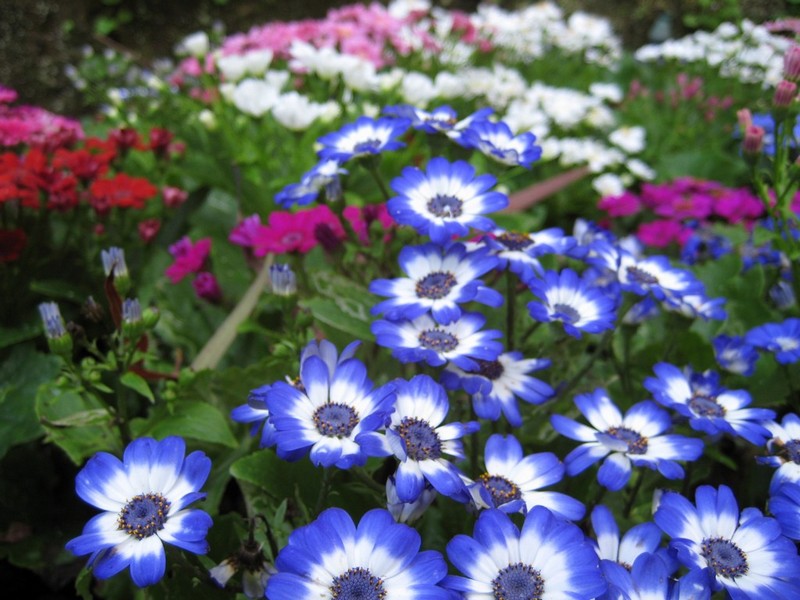Cost of different flowers in Ghana Market

Ghana is blessed with rich and several species of flowers. This has made the flower market in Ghana to have an interesting history with lots getting sold in Ghana for centuries, to be used for traditional ceremonies and festivals.
Most flowers in the early days of the flower industy were grown and sold by small-scale farmers and traders, who would transport their goods to the nearest local markets and sell them to interested buyers. As time passed by, the demand for flowers grew, and more farms were established and also made the flower industry to grow.
The flower industry has also created a range of opportunities for both growers and buyers. Growers now have the opportunity to grow various flowers to sell and the buyers can now buy several species of flowers to sell to the final customers.
Importance of flowers in Ghana
1. Economic significance
The flower industry in Ghana generates a significant amount of revenue for the country through exports. Ghanaian flowers are in high demand in Europe, America and other parts of the world because they are of high quality and are grown using environmentally friendly methods.
2. Cultural significance
Flowers are used as a symbol of love, appreciation, and respect. It is customary for Ghanaians to present flowers to their loved ones as a way of expressing their feelings.
3. Environmental significance
Flowers are a source of food and shelter for insects, birds, and other animals. They also help to purify the air, absorb carbon dioxide and release oxygen, which helps to combat climate change.
4. Health significance
Flowers also have a calming effect on the mind and can improve concentration and memory. Some flowers have medicinal properties that can be used to treat various diseases. Others also helps to reduce stress, anxiety, and depression.
10 different types of flowers available in Ghana
- Hibiscus
- African lily
- Bird of paradise
- Bougainvillea
- Calla lily
- Orchids
- Roses
- Sunflowers
- Jasmine
- Marigolds
Cost of different flowers in Ghana market
1. Hibiscus
- Advertisement -
Hibiscus is a beautiful flower that is native to Ghana. It is commonly used in making tea and is also used as an ornamental plant. On average, a bunch of hibiscus flowers costs around GHS 10 to GHS 15.
2. African Lily
African lilies mostly used in bouquets and as decorative plants. The price of African lilies in Ghana ranges from GHS 15 to GHS 30 per bunch.
3. Bird of Paradise
The bird of paradise flower is known for its beautiful orange and blue colors. A single bird of paradise flower can cost anywhere from GHS 10 to GHS 20.
4. Bougainvillea
Bougainvillea flowers are commonly used in decorative arrangements and can cost anywhere from GHS 15 to GHS 30 per bunch.
5. Calla Lily
Calla lilies are known for their unique trumpet-like shape and come in a variety of colors. In Ghana, a bunch of calla lilies can cost anywhere from GHS 30 to GHS 50.
6. Orchids
Orchids are commonly used in decorative arrangements and can cost anywhere from GHS 30 to GHS 50 per bunch.
7. Roses
Roses comes in a variety of colors and are commonly used in bouquets and as decorative plants. A bunch of roses costs around GHS 40 to GHS 60.
8. Sunflowers
Sunflowers are commonly used in decorative arrangements and are a popular choice for weddings and events. A bunch of sunflowers can cost anywhere from GHS 20 to GHS 40.
9. Jasmine
Jasmine is known for its sweet, floral scent and delicate white flowers. A bunch of jasmine can cost anywhere from GHS 10 to GHS20.
10. Marigolds
Marigolds are known for their vibrant colors and are a popular choice for festivals and events. A bunch of marigolds can cost anywhere from GHS 10 to GHS 20.
Factors that can affect the prices of flowers in Ghana
1. Flower season
Flowers that are in season tend to be more affordable because they are abundant and readily available. On the other hand, flowers that are out of season may be more expensive due to the cost of importing them.
2. Flower demand
If there is high demand for a particular type of flower, the price is likely to go up. This is especially true during peak seasons such as Valentine’s Day and Mother’s Day.
3. Flower farm location
Flowers grown in rural areas may be less expensive due to lower overhead costs, while flowers grown in urban areas may be more expensive due to higher land and labor costs.
4. Cost of transportation
Flowers that have to be transported from distant locations may be more expensive due to the cost of fuel and transportation.
5. Flower Quality
Higher quality flowers will more likely be expensive due to the extra care and attention given to their growth and maintenance.
Conclusion
Flowers are an important part of Ghanaian culture and economy. They play a significant role in the lives of Ghanaians, and their importance cannot be overstated. From their economic significance to their cultural, environmental and health significance, flowers are a symbol of beauty, love, and happiness in Ghana.


